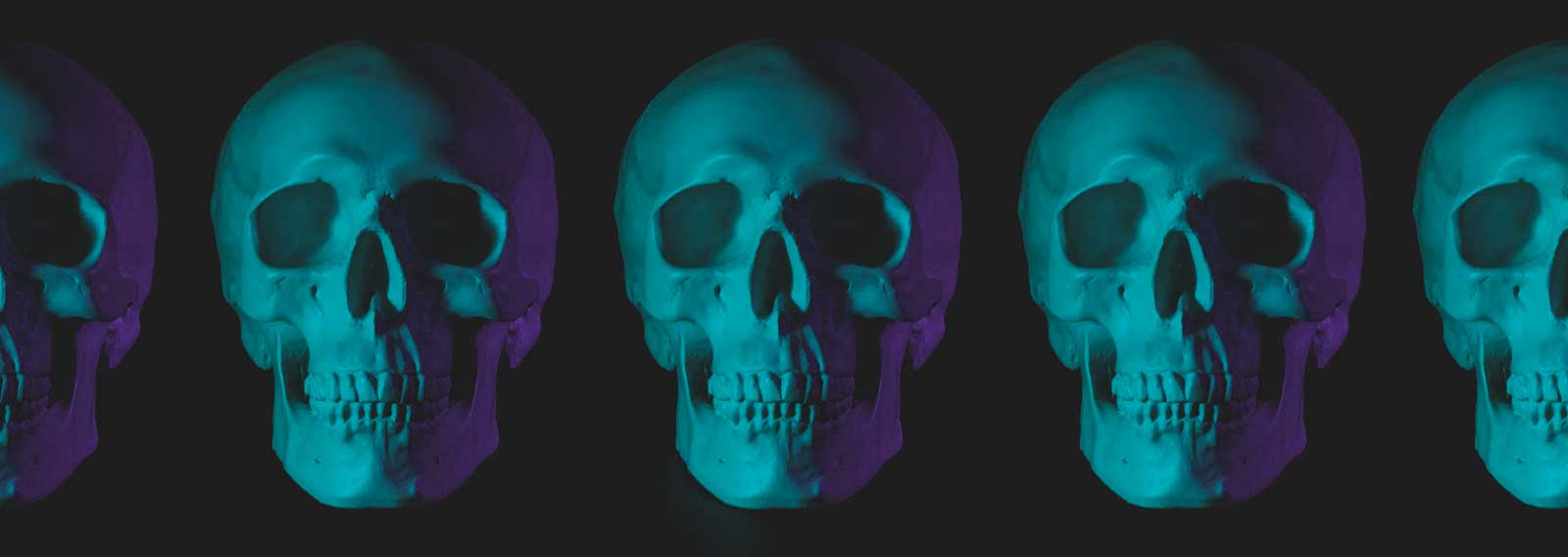A new book by Melania Trump is due to come out in a few days. Among other things, the former First Lady discusses her pro-abortion position. In the book, she will go into much more detail on this, but in a short video just released she said this about the matter:
“Individual freedom is a fundamental principle that I safeguard. Without a doubt there is no room for compromise when it comes to this essential right that all women possess from birth. Individual freedom. What does ‘My body, my choice’ really mean?”
One would have thought that all the leftists who fanatically favour abortion on demand for any reason, at any time, would have given her a word or two of praise. But no, so deep and diabolical is their hatred of Donald Trump that all they could do was savagely attack and condemn her.
As but one example of many, “The View” co-host Joy Behar put it this way: “I think they put her up to this. I think it’s a big scam. They put her out there, you know, as the face of, like, the American population that wants to have abortion rights.”
And of course, pro-lifers and conservatives have been quite disappointed with this. As but one of them, Jonathon Van Maren said this in part:
Melania’s decision to endorse the Democratic position on abortion is another blow to pro-lifers, and yet more evidence that the Trump family was never pro-life. It is true that Donald Trump honored his deal with the pro-life movement in 2016; it is also true that Eric Trump told the press during the RNC that his father had always remained in favor of abortion, nonetheless. Eric’s wife Lara, the current co-chair of the Republican National Convention, is also firmly in the pro-abortion camp. When asked about their views, Donald Jr. and Eric have been careful to only condemn late-term abortion.
While I have no intention of buying and reading her new memoirs, I have already been sharing a few quick thoughts on her pro-abortion stance, so let me repeat that here:
It is a real shame when anyone claiming to be conservative is happy to kill babies. There is nothing conservative, let alone Christian, about baby-killing.
Melania is not running for President of the United States, although yes, she might have some influence on Donald, just as he would have some influence on her.
There is nothing surprising about husbands and wives differing from each other on some issues – even important issues such as this.
Unfortunately, Donald Trump has been up and down on the abortion issue, and on the homosexuality issue as well. While strong on various other issues, he has not been strong nor consistent on these matters.
However, compared to the positions of Harris and Walz on these two crucial issues, Team Trump is still clearly much better, all things considered.
With only fallible and flawed candidates running – as in every election – we must be realistic and deal with what we have, and not foolishly pine for some unobtainable ideal.
For more on that last point of rejecting the purists who demand perfection or nothing (and who always end up getting nothing!), see a piece I wrote when Donald and Hillary were running back in 2016.
See also this much more recent article for more detail on why we must make do with what is available to us in a fallen world – even in terms of political candidates.
But let me at this point slightly switch gears as I segue into a brief discussion of the pro-life cause and its long-standing history. Yes, this is the stuff of entire articles, even entire books, but a few words can be said here. And it arises because of a recent reading list I penned on abortion. You will find that here.
In it, I featured 80 books that promote the pro-life position. One friend sent in a comment saying we need some good histories of the pro-life movement. I replied by saying that at least two of the books I had included did just that. So I have just pulled them from my shelves and blown off a bit of dust. I wish here to simply briefly mention them and offer a few choice quotes from each one. The two books are these:
Grant, George, Third Time Around: A History of the Pro-Life Movement from the First Century to the Present. Wolgemuth and Hyatt, 1991.
This is one of five of Grant’s books that I listed in my bibliography. The subtitle tells us how wide-ranging his history is. In 220 pages he looks at 2000 years of pro-life commitment and activism, overwhelmingly from the Christian community. Indeed, he points out how unique the early Christians were in this regard:
Virtually every culture in antiquity was stained with the blood of innocent children. Unwanted infants in ancient Rome were abandoned outside the city walls to die from exposure to the elements or from the attacks of wild foraging beasts. Greeks often gave their pregnant women harsh doses of herbal or medicinal abortifacients. Persians developed highly sophisticated surgical curette procedures. Chinese women tied heavy ropes around their waists so excruciatingly tight that they either aborted or passed into unconsciousness. Ancient Hindus and Arabs concocted chemical pessaries—abortifacients that were pushed or pumped directly into the womb through the birth canal….
None of the great minds of the ancient world—from Plato and Aristotle to Seneca and Quintilian, from Pythagoras and Aristophanes to Livy and Cicero, from Herodotus and Thucidides to Plutarch and Euripides—disparaged such brutalities in any way. In fact, most of them actually recommended it. They callously discussed various methods and procedures of eliminating the unwanted or undesired portions of the populace. They casually debated their sundry legal ramifications. They tossed lives like dice.
Near the end of his book, he says this:
Pro-life efforts have been an integral aspect of the work and ministry of faithful believers since the dawning of the faith in the first century. Through all the convulsions of the patristic era, into the upheaval of the medieval epoch, on toward the Renaissance and Enlightenment, through the great missions movement and the emergence of America, and into the modern period, the true church has always stood for the sanctity of all innocent life — in contradistinction to the pagan consensus for abortion, infanticide, abandonment, and euthanasia. Admittedly, there have been dark days when the institutional church failed to uphold its covenantal responsibilities, but, thankfully, those days have been short-lived aberrations.
Whenever believers have successfully defended the helpless, their efforts have adhered to a predictable pattern — a covenantal pattern. The elements in that pattern, like the commitment to life itself, has remained remarkably consistent: an emphasis on the necessity of orthodoxy, the centrality of the church, the indispensability of servanthood, the importance of decisiveness, and the primacy of patience.
Olasky, Marvin and Leah Savas, The Story of Abortion in America: A Street-Level History, 1652–2022. Crossway, 2023.
This is one of three books on abortion I featured by Olasky in my recommended reading list. In nearly 500 pages the authors give us a detailed account of how those committed to life have resisted the culture of death and rescued countless babies in just one nation: America. In the book’s Introduction, we read this:
For 370 years, this book shows, laws and their enforcement have depended on public opinion. As Abraham Lincoln said in 1858, “In this country, public sentiment is everything. With it, nothing can fail; against it, nothing can succeed. Whoever molds public sentiment goes deeper than he who enacts statutes, or pronounces judicial decisions.” This book reports on shifting public sentiment over the centuries, and the sentiment in crucial subsets: journalists, pastors, doctors, and others. We also look at records of private opinion, since the views of a woman and her boyfriend or husband are still more influential than any law.
Five main sections of this book cover these 370 years:
One. “Unsafe, Illegal, and Rare, 1652-1842.”
Two. “Specialization Begins, 1838-1878.”
Three. “Supply and Demand, 1871-1940.”
Four. “Seeing Life, 1930-1995.”
Five. “Still Unsettled, 1995-2022.”
In the book’s Epilogue they mention the overturning of Roe v. Wade and then say this:
The Story of Abortion in America is a work of history, not prophecy, so I cannot forecast accurately the changes that will come in the first post-Roe decade. I can, though, list some fundamental things that will still apply. A kiss will still be a kiss. A sigh will still be a sigh. Some men with hearts full of passion, jealousy, and hate will pressure women to abort. Some pregnant women will take desperate measures in a case of do or die. The world will always welcome lovers, as time goes by—but some churches won’t, and some pastors who fear their congregations will be silent.
What this all means is that the need for compassionate help amid crisis pregnancies will remain. Some tiny humans will survive, but most who would have faced a death sentence will still face it, sometimes in New York, California, Illinois, or other abortion strongholds, sometimes in a lonely room where a desperate woman ingests a pill or potion, much as her predecessors in colonial America would have. Life or death for unborn children will still depend on the willingness of their mothers to protect them….
Roe v. Wade poisoned children and poisoned American life. Leah and I hope the womb and the political arena will become safer places. Now that success on the supply side is possible, we hope pro-lifers will expand efforts on the demand side by helping more parents visualize their unborn children and by showing compassion in regard to material and spiritual needs. It’s time for all of us to proceed, as Abraham Lincoln proposed in his second inaugural address, “With malice toward none, with charity for all.”
Seen in the light of these two historical accounts, Melania and others like her are standing on the wrong side of history. We can pray that their eyes are opened, and they realise that killing unborn babies has nothing to do with autonomy, self-determination, genuine choice, or empowerment.
Simply put, when two living human beings enter an abortion clinic, only one of them comes out alive. That is never something to celebrate or champion.






















